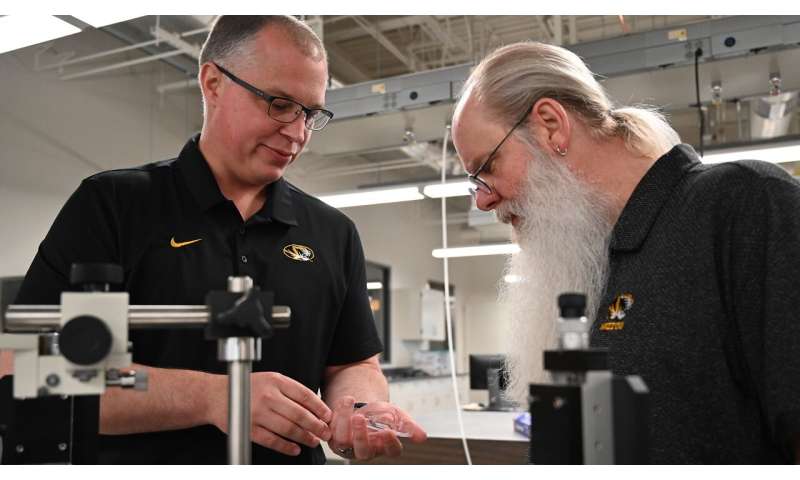Training the next generation to tackle some of the world's 'most significant' challenges

A five-year, $3 million grant from the National Science Foundation (NSF) is establishing a doctoral training program at the University of Missouri to help prepare the next generation of scientists and engineers to work in the emerging fields of materials science and data science and analytics. The aim of the program is to empower future workers to be proficient in both subjects—a skillset that is highly desirable in today's global marketplace.
"We're excited to train a new generation of materials scientists and engineers to be proficient with data science techniques, including machine learning and artificial intelligence, whether it's to discover better materials for building batteries and computer chips, reconstructing technology from ancient civilizations, or harnessing the untapped potential of carbon nanotubes," said Matt Maschmann, co-principal investigator on the project and an associate professor in the Department of Mechanical and Aerospace Engineering. "Students will have the necessary skills to tackle some of the world's most significant challenges in a wide variety of fields ranging from health care and medicine to energy."
The data science components of the program—including artificial intelligence and machine learning—will help guide students in conducting and analyzing experiments associated with this research.
"Data science and analytics can accelerate materials research in various ways," Maschmann said. "But these tools haven't been taught to students who are primarily focused on materials-based programs. What we want to do is integrate emerging tools in data science like artificial intelligence and machine learning into a more traditional materials program. At the end of the program, we'll have students who have a deep understanding of materials, and who are also fluent in data science and analytics—a skillset I think the marketplace is looking for right now."
In addition to placing an emphasis on integrating materials-based research with data science and analytics, the program also has a formal creativity training component to help students conceptualize new materials technologies.
"With machine learning and artificial intelligence taking over a larger role in research, it means that many tasks aren't being performed by humans as much anymore," Maschmann said. "So, we see creativity training almost like a counterbalance to machine learning and artificial intelligence to engage students in the processes that cannot be outsourced to digital tools. Because as these tools become more pervasive, the role of human beings is going to shift more toward the creative and cognitive processes. The parameter space for materials is basically inexhaustible, and by utilizing the available digital tools in a more efficient way, a researcher can arrive at a desired outcome for material properties much quicker. Human creativity is imperative to guide research in innovative and meaningful application domains."
Students interested in participating in the program are encouraged to contact Maschmann for more information. Joining him on the project are co-principal investigators Derek Anderson, Grant Scott, Matthias Young and Reginald Rogers from MU.
Provided by University of Missouri